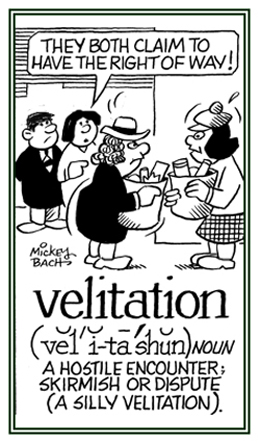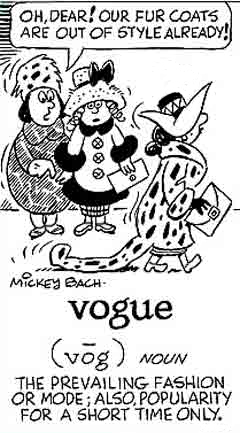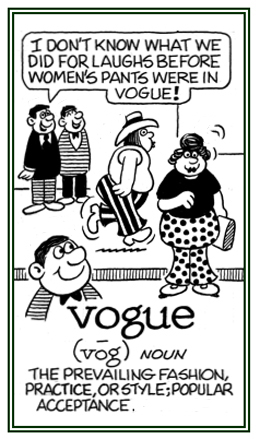English Words in Action, Group V
(a variety of English words which have developed through history and are currently used in our modern age)
Simply click on this banner (or the following link) and you will be on your way to stimulate your brain for greater word comprehension with quizzes based on some of the words in this unit.
1. A substance similar to paint which is used to seal and to harden a surface that is glossy: Lee was asking the clerk in the paint store what the best kind of varnish was available for painting his chairs.
Patrice accidentally scratched the varnish on top of the table.
2. A naturally produced substance; such as, the sap of certain trees that exists in nature: Some trees produce sap that dries and forms a hard glossy surface similar to varnish, but it isn't used by people to paint things.
varnish (verb), varnishes; varnished; varnishing
1. To cover something with a hard smooth and hard finish that results in a shiny coating: Alfred was varnishing the family dining table.
Shelby showed her son how to varnish the bookcase and then to give it a coat of wax.
2. To embellish, to adorn, to disguise, or to gloss over: Tammy tends to varnish the truth about her trip to France in order to make her story more interesting.Calvin varnished his report by glossing over some of the errors that the committee made during the project.
1. A dispute, a skirmish, or a slight contest: After a short velitation regarding the trimming of the hedges between their yards, Jack and his neighbor agreed to do the sections on their sides on the same day.
2. Etymology: from Latin velitation-, from velitatus, from velitari, "to skirmish", from veles, velit-, "light-armed skirmisher".

© ALL rights are reserved.
Go to this Word A Day Revisited Index
2. Etymology: from Latin velitation-, from velitatus, from velitari, "to skirmish", from veles, velit-, "light-armed skirmisher".

Go to this Word A Day Revisited Index
so you can see more of Mickey Bach's cartoons.
1. A thin layer of wood which is glued together with other layers of wood to make plywood: Industrial plywood is made of several layers of veneer glued together.
2. An outer layer applied to a surface of something for decoration or protection: The dining room table had a walnut veneer which had been highly polished.
3. A superficial appearance or show put on to please or to impress other people; a façade: Michael was just putting on a veneer of friendliness.
2. An outer layer applied to a surface of something for decoration or protection: The dining room table had a walnut veneer which had been highly polished.
3. A superficial appearance or show put on to please or to impress other people; a façade: Michael was just putting on a veneer of friendliness.
veneer (verb), veneers; veneered; veneering
1. To bond a thin layer of a material to the surface of a less attractive or inferior material; such as, coating a thin layer of superior wood glued to a base of inferior wood: The cabinet was veneered in oak.
2. Etymology: a thin layer of fine wood or other material to give an appearance of superior quality from about 1702, borrowed (with loss of r in the unstressed first syllable) from German Furnier, from furnieren, "to cover with a veneer, inlay," from French fournir, "to furnish".
2. Etymology: a thin layer of fine wood or other material to give an appearance of superior quality from about 1702, borrowed (with loss of r in the unstressed first syllable) from German Furnier, from furnieren, "to cover with a veneer, inlay," from French fournir, "to furnish".
The figurative sense of a merely outward show or appearance of some desirable quality is first recorded in English in 1868; "to cover with a veneer".
1. A private showing or a preview that is held before the opening of an art exhibition: Nicholas was invited to the vernissage of his friend’s art work on the weekend before the official opening of the art gallery for the public.
2. Etymology: vernissage has its origins in the old practice of setting aside a day before an exhibition's opening for artists to varnish and to put finishing touches to their paintings.
2. Etymology: vernissage has its origins in the old practice of setting aside a day before an exhibition's opening for artists to varnish and to put finishing touches to their paintings.
vie (VIGH) (verb), vies; vied; vying
1. To compete; to strive for superiority; to put forth great effort to outdo others: Playing their hardest, the two teams vied for the championship.
These students are always vying for the highest grades.
2. Etymology: from Old French envier, "to invite, to challenge."
That which tends to be in style, is fashionable, or attractive; however, it is often just a temporary situation: Tamika always seems to be in vogue with the way she dresses and behaves in her social life and school.

© ALL rights are reserved.

© ALL rights are reserved.
Go to this Word A Day Revisited Index


Go to this Word A Day Revisited Index
so you can see more of Mickey Bach's cartoons.
vogue (adjective), more vogue, most vogue
Descriptive of words or phrases that are popular for a period of time: There are many vogue words that are being created in our times; especially, in technology and in e-mail messages.
Links to all of the groups of English words in action, Groups A to Z.
You may see the bibliographic list of sources of information for these words in action.
<img src="/theme/getwords/img/left_arrow_sm.gif" alt="" /> <img src="/theme/getwords/img/right_arrow_sm.gif" alt="" />
Showing 1 page of 9 main-word entries or main-word-entry groups.
